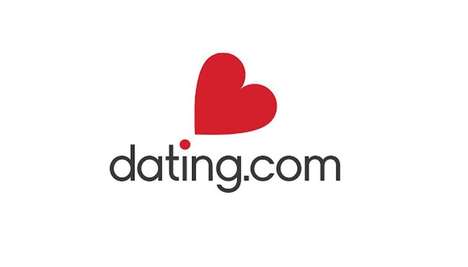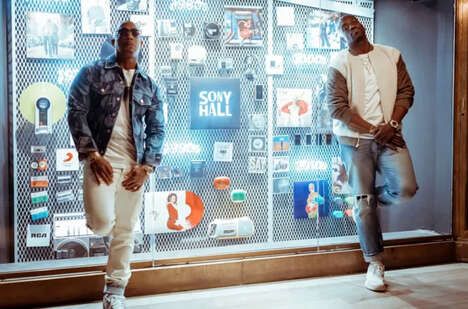Innovating Through Diversity
An Interview with Ross Cadastre and Matthew Coons
Related Trend Reports
AI, Business, Celeb Products, Credit Crunch, Fashion, Food, Furniture, Home, Life, Lifestyle, Luxury, Marketing, Media, Mobile, Multimedia Tell us your name and a little bit about your role?
Tell us your name and a little bit about your role?Ross: My name is Ross Cadastre, and I am the board president of the Black Business and Professional Association, a 40-year-old organization in Canada that seeks to create opportunity and advocate for Black businesses across the country.
Matthew: My name is Matthew Coons. I am the head of Diversity and Inclusion for Xero supporting the US, Canada, and EMEA. Xero is a cloud accounting software company. And we're just trying to make life easier for accountants and small business owners. Ross is one of our great partners in Canada.
1. What does innovation mean to you?
Ross: I run a global company called Innovative Talent Solutions, so innovation is what we do. If I think of innovation, and I speak specifically about the Black community and the challenges that the Black community has, like access to capital as a Black home business, access to information, and access to networks. These are some of the challenges. And as an organization, we seek to help with that through our programming. And I'd like to think that our programming is pretty innovative. We run 20 different programs that support what I've just said. And we're always looking for ways to build and show that our constituents, as I call it, get the support they need.
One of our biggest programs is called Business Advisory, Implementation Development System. It's called Bates for short. What the program seeks to do is support 400 businesses over four years. In our first year, we had 800 businesses apply for the program. The funding is not enough. But what that program does is it provides support systems to Black-owned businesses. So if you think about it, if they needed help building a business plan, what we would do is we would hire a consultant to build that business plan. If they needed taxes or any financial input, we'd have an accountant if they needed legal, a lawyer, and so on.
So anything around the business that they would need that support with that's what Bates is built and set up to do. So that's one of our programs. Another one is our Base sale, which is a training program for business people. One of the challenges is that most Black people opt out of corporate Canada largely because of anti-black systemic racism. They feel they can’t reach high success because of the systemic challenges. So they opt out, and they say, “Okay, what am I gonna do? I'm gonna start my own business. What, what business am I gonna start? Well, my buddy says I'm a good cook, so I'll start a restaurant with no business experience.”
No, all the other pieces, I'm just a good cook. So they stuck. And that's kind of how businesses typically evolve in the Black community. So Bates provides the training on the other aspects because I don't have to train you on how to make a good sandwich but you need to know how to run a business.
Matthew: I think innovation, in the context of corporate diversity, equity, and inclusion, is everything. I mean, it's so much about dismantling systems of racism, marginalization, and exclusion that obviously existed, that have been perpetuated through government and policy-making through organizational culture, whether that's implicitly expected or explicitly through policies.
It's about going back, recognizing, you know, where we have created those gaps in the past and innovating to ensure they're inclusive for the future. Because when we think about our strategic priorities at Xero, and we wanna make life better and easier for small business owners, and in the US, the majority of Black-owned businesses are small businesses. The majority of women-owned businesses are small businesses. And so in order to serve our customers we need to be innovative so it's inclusive so we can bring in talent that provides the best product and experience possible for our customers. And I think about access and access is such a huge conversation and topic, and it should never not be. Because access to education, the history of access to capital, the ability to go to school, to even apply to school, to go to certain Ivy League schools in the US, it's about that network that enables people to go into certain spaces, certain rooms. So it's really taking a holistic view of where we are right now, how are we perpetuating that, and being innovative through everything we do to ensure we're serving our customers.
Ross: You nailed it because that is exactly what our scholarship program aims to do; be the starting point for that access. And my son goes to university and is in a fraternity. The network that he's amassed just by being part of that fraternity is incredible. Somebody who didn’t go to university doesn't have access to that network. The fact that we can have more Black students in school gives them not only access to the knowledge and the training, but the access to the networks.
2. What is the biggest challenge you face when innovating?
Ross: Innovation has a lot to do with changing a mindset and doing it differently than anybody else has done it before and people will catch on. I've always thought that, when you're an innovator, you're setting the pace for the next generation. So to answer your question, I think the most difficult part is taking people along the journey because not everybody can see where you want to go.
If we sat back 40 years ago to when Denim Jolly, a very successful businessman, first started BBPA, he would tell you that he would, in his wildest dreams, he wouldn't have thought that we would've had the capacity right now for the things that we're doing. So in my role as Board President, from an innovation standpoint, the hardest thing about innovation is taking people with you every step of the way so that they understand the vision.
Matthew: And a key piece of that is understanding the bias associated with the resistance to innovation and change. You know, there's so many different types of bias and a model that I use and talk about at work frequently is the SEEDS model from the Neuro Leadership Institute. So similarity, expedience, experience, distance and safety, and thinking about safety bias in the context of innovation, doing things the same is safe, it's comfortable, it's what we know, and we have the habits and behaviors over time that reinforce that around us through social socialization, through culture.
Another risk and danger to innovation is who are we innovating for? So if we have kind of lack of diversity within the room we're gonna miss out on who we're supporting, who our overall goals and outcomes are there to make successful. So I think reflecting on how our perspectives are limited, and because of that, we need to do it together to innovate really, really effectively.
Ross: We know there are stats out there that say, across North America, that the most innovative companies are the most diverse companies. Whether it be women in leadership or minority-owned, brands that embrace diversity at the most innovative and the most profitable companies.
Matthew: When we are talking about culture, diversity, and perspective, especially when looking at gender identity, racial ethnic identity, and all these aspects of identity, are we bringing people together to have these conversations, to innovate? Or are we bringing people together with an expectation for assimilation or an expectation that we're supporting individualism? Because that is where innovation really comes from. If the expectation is for assimilation, then we're not getting new ideas and new thoughts that really support a new product.
Ross: Some organizations look at diversity as a checkbox, and, in those cases, it’s not it's not going to last and it's not going to help them. But organizations that embrace diversity lend towards building an innovative environment where people can thrive.
Looking to the future, how will you continue to be a leader in innovation?
Matthew: It's people. One of our values at Xero is human because people are at the core of our relationships, of our product, and of making sure that things are accessible. So it's how do we support an effective organization? I mean, we're globally dispersed. They are cultural differences, cultural barriers, and cultural challenges when we bring everybody together. And how do we enable people to effectively navigate that with commitment and courage? And you know, one of the things that comes with innovation is that it is inherently risky to change the status quo. And so how do we ensure through policies, through procedures, through a really strong culture, that that risk is either minimized as much as it can, or people know that if that risk, if you feel lack of safety, there's somewhere to go for that conversation. So I think it's departing from that assimilation culture. It's making sure people feel like they can be themselves. And that we, again, just showing up and speaking up in a way that is our own idea.
Featured Articles

Ultra-Chic Marble Furniture
ABC Stone Taps Cara Woodhouse to Create 'Classic Rock' Furniture Line

Fake Tomato Sauce Blood
Heinz Tomato Blood Ketchup Returns for Halloween Season

Dream Cocktail Coordinator Jobs
Smirnoff is Recruiting for Its First-Ever Cocktail Coordinator

Food-Inspired Tech Accessories
Vandy the Pink and CASETiFY Debut a Fast Food-Focused Collection

Metaverse Dating Spaces
Dating.com Enters the Metaverse via new Partnership with Decentraland

Influencer-Collaborated QSR Menus
Shake Shack Partnered with 'First We Feast' on a Hot Ones Menu

Groovy Eco-Friendly Leisurewear
Hagon Workshop's Bright New Pieces are Made from Preloved Textiles

Rapper-Backed Charitable NFTs
Ja Rule's The Painted House Debuts Its 'Black Is Beautiful' NFTs

Retail-Focused Investing Algorithms
CoinShares Launches an Algorithmic Trading Tool Called 'HAL'